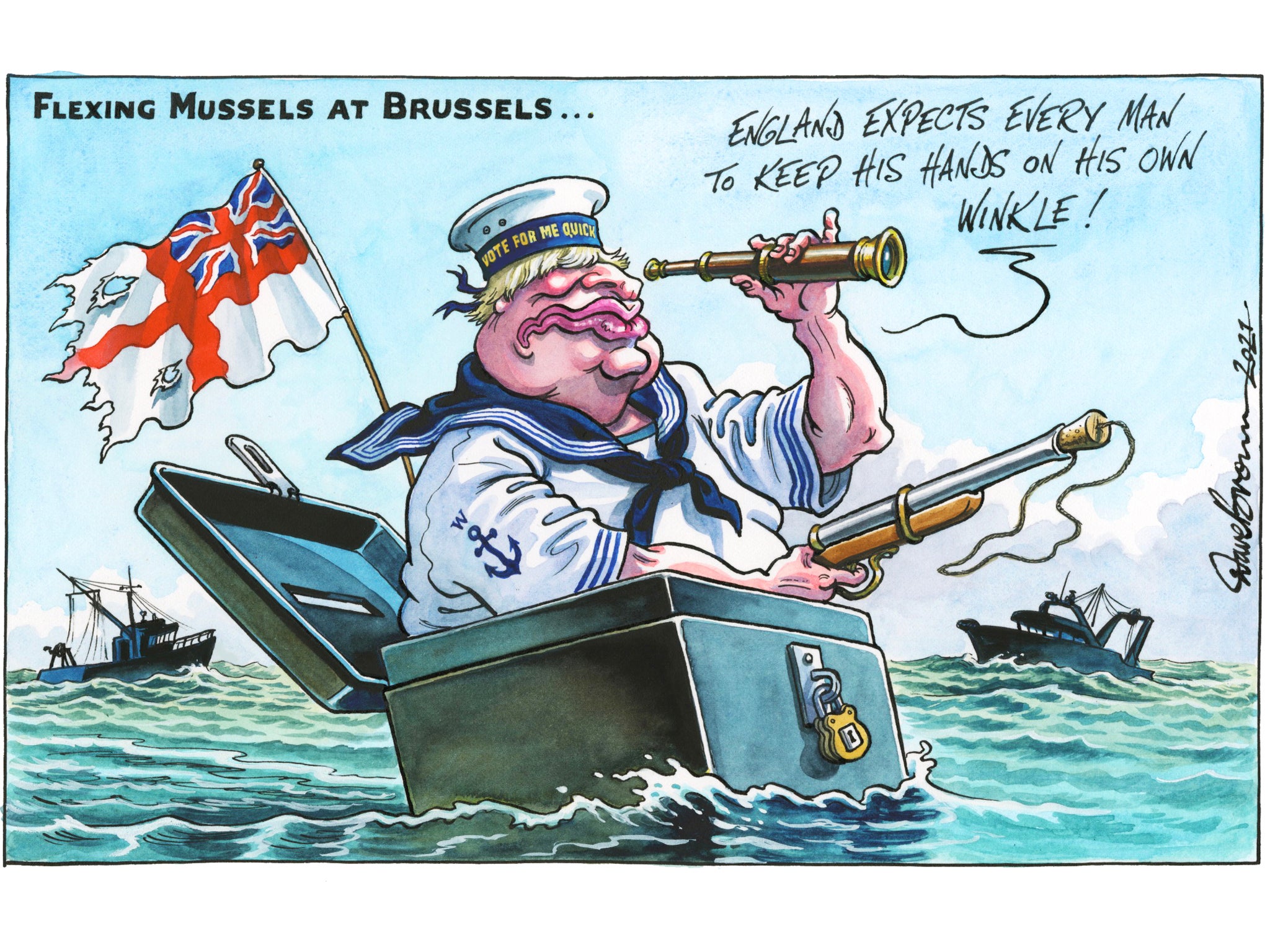The Jersey fishing row is the latest Brexit aftershock – is this really what the British people voted for?
Editorial: As when the tide recedes to reveal all manner of horrors beneath the surface of the sea, so too has Brexit laid bare the extent to which UK membership of the EU was beneficial to all

Just a few days ago the French state, led by Emmanuel Macron, solemnly marked the bicentenary of the death of Napoleon Bonaparte. To a casual observer looking out into the English Channel from Jersey, it might seem that little has changed since the 1800s. British “warships” – in reality fisheries protection vessels rather than a reincarnation of HMS Victory – have been deployed around the Channel Islands, and the French navy has responded in kind.
This latest grievous aftershock of Brexit is no laughing matter. As when the tide recedes to reveal all manner of horrors beneath the surface of the sea, so too has Brexit laid bare the extent to which British membership of the European Union, and partial membership in the case of Jersey and the other crown dependencies, was beneficial to all sides. As with the North Sea more generally, all the way up to the Scottish shellfish trade, it is apparent that although the UK has indeed regained control over its exclusive maritime economic zone, it has spectacularly lost control of the markets in Europe to which it used to enjoy such easy access.
Jersey and its fisherfolk may feel entitled to say which French vessels can now harvest the seas, but the militant French fisherfolk can blockade the island, the French government can switch off Jersey’s electricity supply, and the EU can retaliate by, say, cutting UK access to the bloc’s financial services sector. Under Brexit contingency plans previously drawn up, the besieged island may have to be supplied by airlift. Although only those from Jersey who had lived in the UK within the past 15 years got a vote in the Brexit referendum, it is still worth asking: is this the Brexit we voted for?
This certainly never featured on the side of any bus, but is one of the many baleful and predictable consequences of the decision, if anyone had cared to look. As with the Irish peace process, the arrangements for French fishing around the Channel Islands had been long since settled. The new EU-UK Trade and Cooperation Agreement abrogated the old Treaty of Granville Bay and its descendants, and, as we see, has thrown established ways of life up in the air. Brexit is even worse than a zero-sum game, because all sides suffer, either through loss of access to fishing grounds or being excluded from fishing markets.
Even in Napoleon’s day, warships never solved anything for long, and the ridiculous situation in the Channel needs a rapid and pragmatic solution, if needs be by swift amendment to the Brexit treaties. For a much longer transition period, or preferably permanently, the waters around Jersey, Guernsey, Sark and Alderney can be treated as a special case, and the old, relatively harmonious arrangements can be restored.



Join our commenting forum
Join thought-provoking conversations, follow other Independent readers and see their replies
Comments